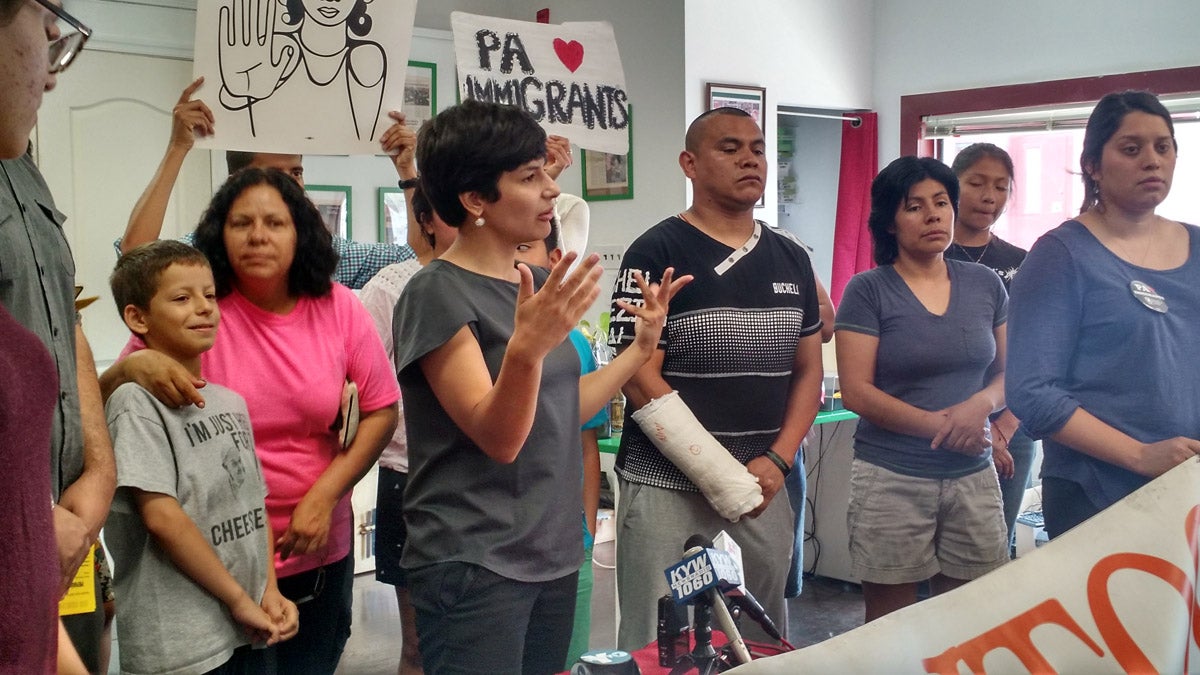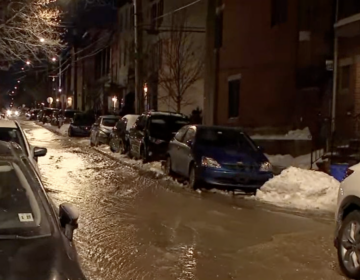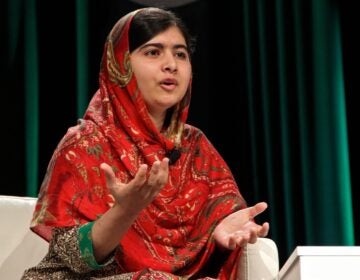High court impasse frustrates immigrant families yearning to ‘come out of the shadows’

Immigrant advocates gather in South Philadelphia to decry a tie Supreme Court decision
Immigrants and their advocates in our region are reacting with with anger and sadness to a tie decision by the Supreme Court, which blocks the Obama administration’s efforts to shield as many as 5 million undocumented people from deportation.
Delaware County resident Maria Sotomayor’s parents are undocumented immigrants from Ecuador who would have qualified for a program granting work permits to those with citizen children.
Now, that program — known as Deferred Action for Parents of Americans or “DAPA” — remains in legal limbo.
“My mother sent me a text a little bit after she heard about [the decision] to ask me what happened, and then she told me she was sorry that it didn’t pass,” Sotomayor said, holding back tears. “I didn’t understand why she said she was sorry. It’s not like she did this.”
Many immigrant families have pinned their hopes on DAPA since President Obama issued an executive order creating the program in November 2014. The program did not guarantee citizenship, but was billed as an opportunity for people like Sotomayor’s parents to “come out of the shadows” by removing the threat of deportation and allowing them to legally work.
Twenty-six states challenged the plan in court, arguing Obama had overstepped his authority. In 2015, a district court judge in Texas issued a preliminary injunction, blocking DAPA while the case moved through the courts.
The deadlocked Supreme Court decision sends the case back to the lower courts.
“Now we have to wait for all the legal arguments and we don’t know when that’s going to happen or how,” said Karenina Woff, a Philadelphia-based immigration attorney.
Local advocates are planning a series of demonstrations in the coming weeks, calling for a moratorium on deportations until the DAPA case is settled by the courts.
Sotomayor, who works for the Pennsylvania Immigration and Citizenship Coalition, said the coalition is also ramping up efforts to register people to vote in this year’s election, since the future of immigration reform rests largely on the next president.
“There are a lot of families with mixed status whose children are already old enough to vote in the next elections, who will be going out and voting for their parents — not for the president, but for their parents,” she said.
WHYY is your source for fact-based, in-depth journalism and information. As a nonprofit organization, we rely on financial support from readers like you. Please give today.




